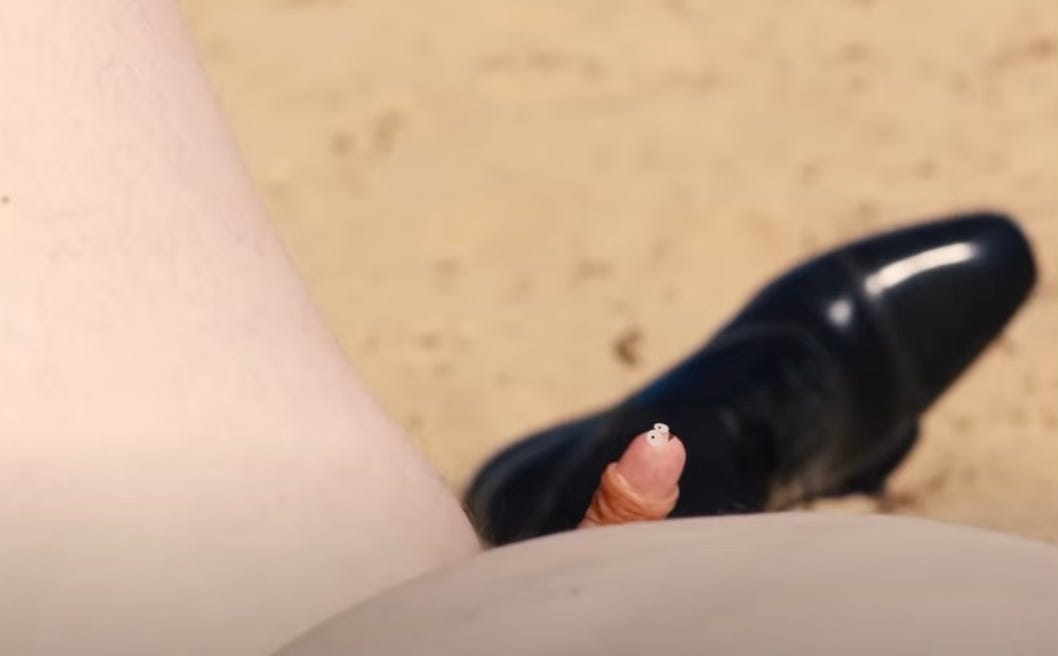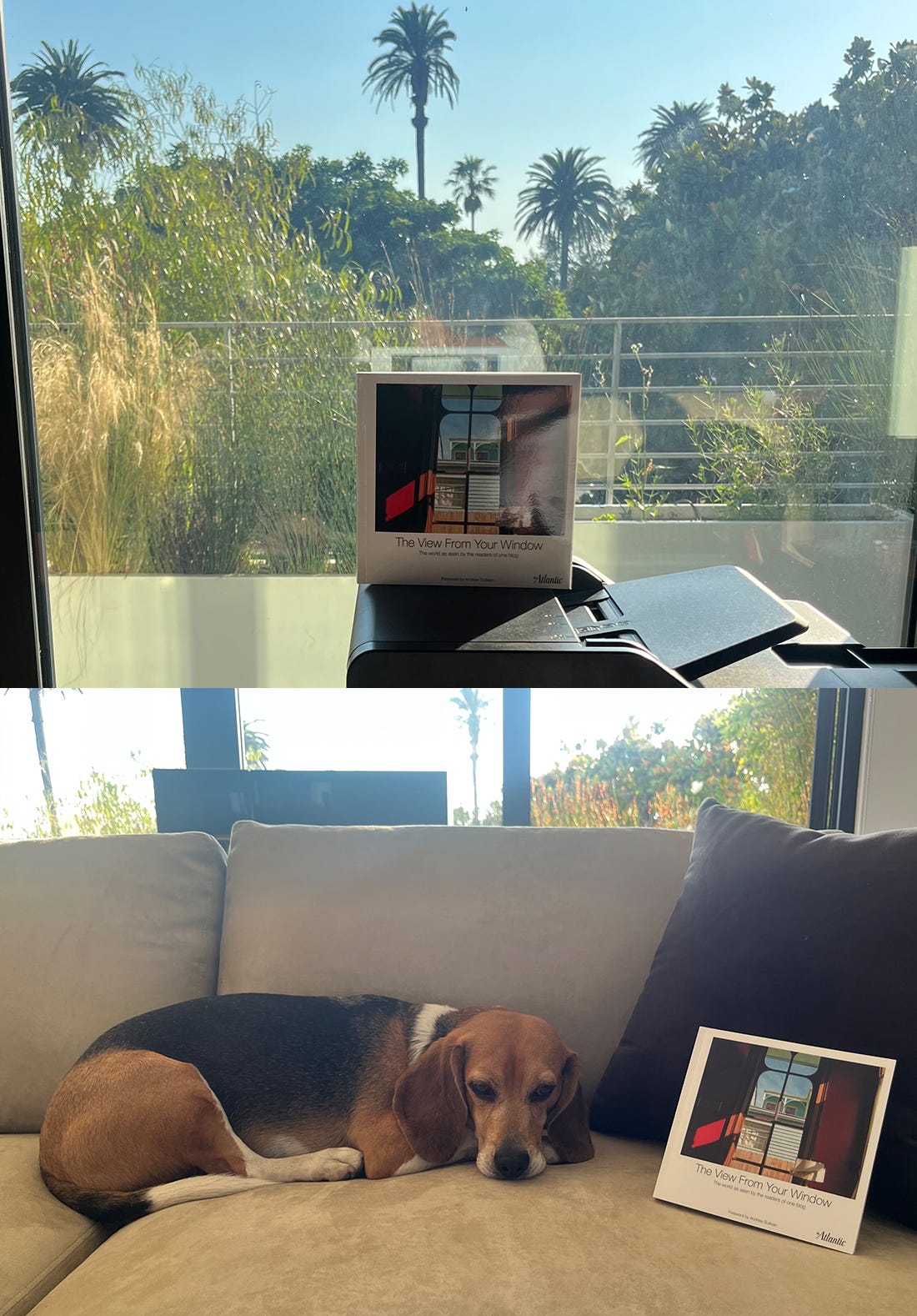A Fusion Of An Idea And A Place
JD Vance is half-right and yet entirely wrong about America.

It’s extremely hard to convey to native-born Americans what immigrating here is like.
To begin with, the country is not unknown to you. How could it be? One of the strangest feelings I had in those first few fetidly humid days in New York City in the August of 1984 was that I had somehow slipped into a movie set. I had heard these accents, these voices, these drawls, so often before — but only on screen, on television, and in the entire imaginative world Hollywood had bequeathed to me. Now these sounds were all around. This was a foreign country — much more foreign than I had begun to realize — yet somehow seemed uncannily familiar.
Then there is the absence of the hierarchies you had become used to — of class, for this Englishman. And the possibility of an entirely fresh start, for this homosexual. An English friend of mine and I drove in the summer of 1985 from Miami to San Diego then up to Seattle and then back east to Boston. The airwaves were full of John Parr’s “St Elmo’s Fire” and George Michael’s “Careless Whisper.” We stayed in Motel 6s, and with each visit to a local diner, I fell a little bit more in love. But I had been smitten from the get-go. After only a few weeks in this country, I wrote my parents a letter, in which I wrote: “I know this sounds strange but I feel like I’ve come home.”
Americans made it feel like home — across the country, from the steamy South to the dank Northwest. No one ever told me I couldn’t say what I wanted, or live as I pleased, or made me feel that as a foreigner I had less of a place here than any native. At the tender age of 26, I was offered the massive responsibility of editing a national magazine which was, at the time, at its peak of influence, and (almost) no one batted an eyelid about my national origin. It is simply inconceivable that a foreigner could have been given a similar role in any other developed nation. Or treated with such astonishing generosity.
Was my burgeoning love of America an attachment merely to a creed? I’m referring to the idea that the US is essentially a creedal nation, and not a traditional one. In a recent speech to the Claremont Institute, Vice President Vance defined what that “creedal” means — and poured some cold water on it:
If you think about it, identifying America just with agreeing with the principles — let’s say, of the Declaration of Independence — that’s a definition that is way over-inclusive and under-inclusive at the same time ... It would include hundreds of millions — maybe billions — of foreign citizens who agree with the principles of the Declaration of Independence. Must we admit all of them tomorrow? If you follow that logic of America as a purely creedal nation — America purely as an idea — that is where it would lead you.
But at the same time, that answer would also reject a lot of people that the ADL would label as domestic extremists, even though those very Americans had their ancestors fight in the Revolutionary War and the Civil War.
I presume Vance is referring here to the many Americans whose forefathers backed the monarchy in the War of Independence or who once defended slavery as an American principle. Are their offspring somehow less American than, say, immigrant Melania Trump or daughter of immigrants, Usha Vance? And the American answer to that is: of course not.
Many, many Americans have been on the “wrong side” of American principles and history over the centuries, but they played as much of a role in propelling America’s evolution as anyone. And no one today is somehow bound by the views or identity of their ancestors. We are answerable only for ourselves in our time. And in every time since the Civil War, citizenship in America has transcended race, class, origin, religion, and has been rooted in the core conviction that “we hold these truths to be self-evident, that all men are created equal.” That’s why Lincoln could tell the newest immigrant fighters at Gettysburg that, wherever they had been born, they remained “blood of the blood and flesh of the flesh of the men who wrote that Declaration...”
So no, Mr Vance. There are no super-American Americans. There are merely Americans. From Lincoln to Bush, that was the Republican vision — until Trump.
But yes, Mr Vance, America is also not “purely an idea.” It’s also a landscape, a long, tortured, inspiring and often deranged history, a litany of rooted and real cultures, of differing dialects and languages, customs and manners — from Louisiana to New Mexico, Vermont to Ohio. It’s halcyon skies, and enameled plains! For me, America is inextricable from the dunes and wildernesses of the Outer Cape where the Pilgrims first landed, and where I return each year in a kind of pilgrimage. It is very much a place as well as an idea.
Because in America, unlike anywhere else, the place is also indistinguishable from the idea of liberty. In a classic essay, British immigrant writer Henry Fairlie recounted how
a Texan friend asked me one evening: “Why do you like living in America? I don’t mean why you find it interesting — why you want to write about it — but why you like living here so much.” After only a moment’s reflection, I replied, “It’s the first time I’ve felt free.”
Me too. Britain cherishes liberty in its national evolution as much as America — but it sure didn’t start as such. France celebrates its universal ideals — but those ideals once broke that nation in two, and created a despotism never experienced here. Both countries have populations that stretch back continuously for millennia. In Britain, a few years back, a local English teacher was found to have a genetic link to a skeleton found half a mile away that was 9,000 years old. Apart from Native Americans, this is not an option for anyone here. In America, everything and everyone is new, and all have been filtered through a revolutionary and yet also startlingly conservative document, the Constitution.
For every immigrant, the fusion becomes real when you take the oath — not to a monarch, or president, or continent, but to the Constitution. Sometimes I wish all Americans got to do what I did on December 1, 2016, because they would maybe grasp how deep this runs. Yes, you’re committed to life, liberty, and the pursuit of happiness, but it’s also inextricable from this new vista, whose very geography and resources make that kind of freedom possible. In his final speech as president, Ronald Reagan quoted from a letter he had received from an immigrant. It read:
You can go to live in France but you cannot become a Frenchman. You can go to live in Germany or Turkey or Japan, but you cannot become a German or a Turk or a Japanese. But anyone, from any corner of the earth, can come to live in America, and become an American.
And what happens when you become an American? You become free; and you become equal. Take those ideas out of this place and it is just another landmass. Which is, alas, what this president and his fawning underling appear to be aiming for. And in which we must insist they fail.
(Note to readers: This is an excerpt of The Weekly Dish. If you’re already a paid subscriber, click here to read the full version. This week’s issue also includes: a fascinating chat with Tara Zahra on the anti-globalization of the interwar years; a shoutout to the Fed chair and South Park; a few dissents over the crime rate and Bostock; six notable quotes from the week in news; 18 pieces on Substack we recommend on a variety of topics; a Mental Health Break of teenaged Bee Gees; a cool elevated window in Chicago; and, of course, the results of the View From Your Window contest — with a new challenge. Subscribe for the full Dish experience!)
From a renewing subscriber:
The Dish has been my political loadstar since Covid. I’ve been a subscriber since I first discovered Substack, only resubscribing now because of a card issue. Appreciate your work!
If your own card expired during the past year, you can change your payment information here. From another Dishhead:
Not only do I love the podcast, the newsletter, etc., I am relieved year after year to see the same price. I just paid my 6th subscription on the 19th and happily did so.
Most grateful.
How To Handle Trump
As corporations kowtow and universities grovel, as mask-wearing agents patrol our streets, and as the rank corruption spreads and deepens, there were two moments this past week where the American spirit endured. Props to Jerome Powell, whose grumpy public shutdown of another Trump lie was truth to power manifest; and of course, to Matt and Trey, who solved their Trump problem by turning him into randy little Saddam, and producing the pro-Trump PSA above.
This is the way.
Home News
Time flies when you’re having fun. This week is the Weekly Dish’s 5th Anniversary, and the 25th Anniversary of the Daily Dish which preceded it. A quarter of a century of innovating new media. Couldn’t have done it without many, especially Substack and the guardian of Dishness, Chris Bodenner.
But above all, you. 200,000 of you subscribing each week, 20,000 of you paying us. The best readers a writer could ever ask for. THANK YOU. (And if you haven’t yet, subscribe!)
New On The Dishcast: Tara Zahra
Tara Zahra is a writer and academic. She’s currently the Hanna Holborn Gray Professor of East European History at the University of Chicago. This week we discuss her hauntingly relevant book, Against the World: Anti-Globalism and Mass Politics Between the World Wars.
Listen to the episode here. There you can find two clips of our convo — on the starving of Germany during and after WWI, and what Henry Ford and Trump have in common. That link also takes you to commentary on our episodes with Thomas Mallon, James Alison, and Walter Isaacson. Readers also discuss Stonewall and the falling crime rate.
Browse the Dishcast archive for an episode you might enjoy (the first 102 are free in their entirety — subscribe to get everything else). Coming up: trans activist Shannon Minter debating trans issues, Scott Anderson on the Iranian Revolution, and Johann Hari turning the tables to interview me. Please send any guest recs, dissents, and other comments to dish@andrewsullivan.com. From a fan of the pod:
It seems like no matter who you talk to, it’s an interesting conversation. In fact, I’ve come to think, “Oh good, I’ve never heard of this person; I bet this is going to be a good one!”
The other thing about your show which surprises me is how much I enjoy the biographical aspect. Normally, when hosts ask about the guests upbringing and such, I groan. Get to the good stuff! But whatever you’re doing works, because I almost always find the stories of their lives fascinating and directly informative of how they approach their work and what work they’re doing.
A new subscriber cites a specific episode that got him to pay up: “Spencer Klavan’s conversation with you from 2023 — gay and Christian and trying to figure it all out.”
Dissents Of The Week
A reader who works in crime policy research has two quick counterpoints over my latest column:
First, the evidence on the “Ferguson Effect” remains at best middling. Second, there is no evidence beyond vibes linking “progressive prosecutors” to rising crime. It’s true that some big names in the movement lost and got replaced with more traditional law enforcement officials, but many (most?) didn’t. Larry Krasner and Alvin Bragg are still in office, for example, and crime rates are plummeting in their jurisdictions too.
Another reader addresses the other piece I wrote:
In your defense of your admirable NYT essay, you say that homosexuals and trans people “got civil rights protection ... under, yes, Trump [and] a Trump appointee.” Your right to give Neil Gorsuch — a quasi-Catholic, country-club, pseudo-intellectual conservative — credit for writing the Bostock opinion. However, it is quite wrong to suggest that because Bostock occurred while Trump was president, it was a victory attributable to his presidency — i.e., that it happened “under” his administration.
To the contrary, after the Supreme Court agreed to hear Bostock, the Trump-Barr DOJ filed an amicus brief arguing that Title VII’s protections did not extend to homosexuals or trans people. That means the Bostock decision happened in spite of the Trump administration’s efforts to restrict rights in the workplace.
As always, please keep the dissents coming: dish@andrewsullivan.com. And follow more Dish discussion in my Notes feed.
In The ‘Stacks
This is a feature in the paid version of the Dish spotlighting about 20 of our favorite pieces from other Substackers every week. This week’s selection covers subjects such as the Epstein mega-scandal, Colbert, and “The Riviera in Gaza.” A few examples:
Ever heard about the conspiracy theory over small dicks in Korea?
Liza Libes, with the help of Aristotle, assails small talk.
Here’s a list of the substacks we recommend in general — call it a blogroll. If you have any suggestions for “In the ‘Stacks,” especially ones from emerging writers, please let us know: dish@andrewsullivan.com.
The View From Your Window Contest
Where do you think it’s located? Email your guess to contest@andrewsullivan.com. Please put the location — city and/or state first, then country — in the subject line. Proximity counts if no one gets the exact spot. Bonus points for fun facts and stories. The deadline for entries is Wednesday at 11.59 pm (PST). The winner gets the choice of a VFYW book or two annual Dish subscriptions. If you are not a subscriber, please indicate that status in your entry and we will give you a free month sub if we select your entry for the contest results (example here if you’re new to the VFYW). Contest archive is here. Happy sleuthing!
The results for this week’s window are coming in a separate email to paid subscribers later today. From our recent winner in Hawaii:
The VFYW book arrived and we love it. It’s now joining our collection of coffee table books and sits in front of perhaps the best view from our window we’ve ever enjoyed:
We adore this view … watching a full moon rise over the hillside, listening to raindrops from the daily tropical storms pound the roof, and admiring the blessedly frequent horizon-to-horizon rainbows stretching over Koko Head and the Hanauma Ridge in the distance. Even our Great Pyrenees enjoys the view as she watches over the valley and ruins our sofa.
A book also just arrived for our super-sleuth in Santa Monica, who’s settling into his new home after those horrible wildfires leveled his old one — along with the VFYW book he won years ago:
The replacement book has arrived: thank you very much!
Dougal was not wildly cooperative for the photos, as his expression could hardly make clearer. But I attach Dougal, the microfiber and supposedly pet-friendly new sofa, and The View From Your Window, as well as the actual view from my window:
We are very grateful for this contribution to making four bare walls feel a bit more like a home.
The VFYW biologist writes, “Count me among the folks who read every word of the Santa Monica super-sleuth’s saga, and I’m wishing for a happy ending to it for him and Dougal!”
See you next Friday.






